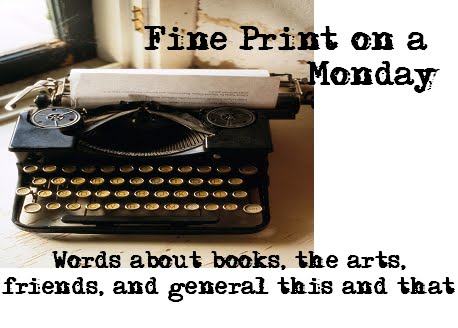
I finally dug into Miss Julia Speaks Her Mind in earnest this weekend. This is our book group selection for next Friday. The Fannie Flagg endorsement at the top signaled that this would be light, but enjoyable reading. And so it is! Miss Julia is newly widowed when she gets the surprise of her life...the illegitimate son of her well respected late husband is dropped on her doorstep. Of course, everyone chimes in on how she should handle the situation, but, before she can fully decide what to do, her home is ransacked, evidence of a crime is found in the garage of the boy's mother, the boy is "borrowed" by a revivalist TV evangelist, and her church is hinting that they expect a substantial contribution from her inheritance.
This is the first in a series by Ann B. Ross, and I can see why the books are so popular. Miss Julia is a feisty female who has surrounded herself with a group of colorful friends, enemies, and associates.
**********I set the fun reading aside for a while this weekend to step into the Gothic world of revenge! I watched Sweeeny Todd for the second time, but the highlight of my weekend was seeing Emily Trask in the world premier of Armadale at the Milwaukee Rep. The novel upon which the play is based was written by Wilke Collins, a contemporary of Charles Dickens. Collins is best known for Moonstone, and the ultimate Gothic suspense novel, The Woman in White. Armadale spans several generations, focusing on one woman's twisted plot to avenge a misdeed from a prior decade.
*********
Both the play and Sweeney Todd made me wonder about the nature of revenge and the nature of those who seek it. Granted, our very essence as feeling human beings makes us vulnerable. What we choose to do, what we embrace, what we support, the people we allow into our lives, and all other choices we make provide many ways in which our humanity can be invaded. And, when our humanness is violated, is it in most of us to seek revenge? I wonder? Is there a universal breaking point at which a person can no longer turn the other cheek? Because revenge is a prevalent theme in literature, the suggestion is that we can all relate to it on some level. On a very basic level, I would question how two wrongs can logically make a right. I would ask what satisfaction can be gained from the probability that retaliatory action will most likely set another revenge cycle into motion.
**********
In Aramdale, Lillian Gwilt was never happy. Her life was controlled by constant scheming, positioning, and waiting for her plots to bloom. In the meantime, she turned her back on much that is good in life. She sacrificed it all for a moment that came with no guarantee of satisfaction. The same can be said of Sweeney Todd.
Maybe that's what literary philosophers are trying to tell us. Maybe they're warning us that no good can come from revenge. We need to rise above the desire. We need to move on. It's safest to read about it in other people's lives, isn't it? As for me, I'm sticking with "Miss Julia" - her simple life is more my style.
